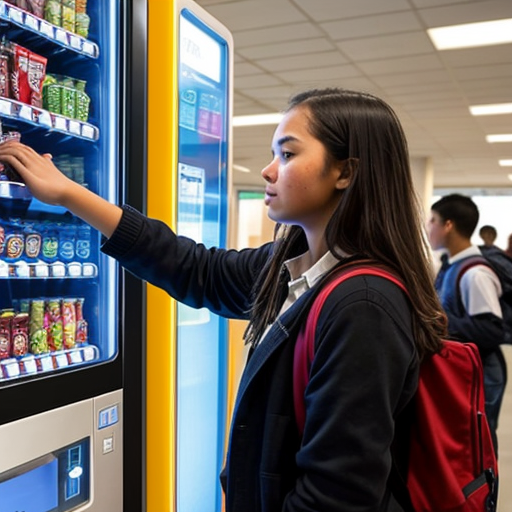It all started with an innocent trip to the vending machine for a quick snack. Little did these college students know that their faces were about to be exposed in a shocking database leak. The incident was nothing more than a simple error, but it revealed the dark underbelly of facial recognition technology on campus.
For years, colleges and universities have been quietly implementing facial recognition systems in an attempt to boost security and streamline processes. However, this vending machine glitch has exposed just how much data these institutions are collecting about their students without their knowledge or consent. The database contained high-resolution images of each student’s face, which could be used for a variety of purposes, including tracking attendance, identifying potential criminals, and even monitoring social interactions.
The backlash was immediate, with students demanding answers from the administration. They argued that their privacy had been violated, and that they should have been informed about the implementation of this technology before it was deployed. The school’s response was tepid at best, offering only a vague explanation of the database’s purpose and downplaying any potential risks associated with facial recognition.
As word spread across campus, students began to question just how much data their institutions were collecting about them. From social media activity to academic performance, it seems that nothing is off-limits when it comes to tracking student behavior. Many have expressed concern over the potential for misuse of this information, as well as the lack of transparency surrounding these policies.
The vending machine glitch may have been an innocent mistake, but it has opened a Pandora’s box of questions about privacy and data collection in higher education. As more institutions adopt facial recognition technology and other forms of surveillance, students are left wondering just how much of their personal information is being shared with the world at large.
As this controversy continues to unfold, one thing is clear: colleges and universities must be more transparent about their use of data collection tools if they hope to maintain the trust of their students. In an age where privacy is increasingly scarce, it’s up to these institutions to ensure that the line between security and surveillance isn’t crossed.





Leave a Reply